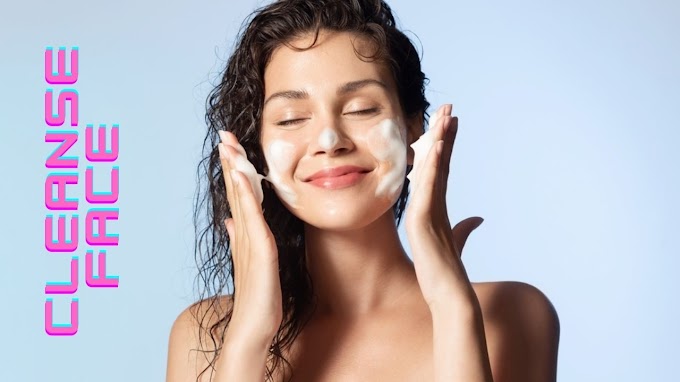
What are the 5 basic of skin care?
The five basics of skincare are as follows:
Cleansing: Cleansing is the first and essential step in any skincare routine. It involves using a gentle cleanser to remove dirt, oil, and impurities from the skin. Choose a cleanser suitable for your skin type, whether it's oily, dry, or sensitive.
Toning: Toning helps balance the skin's pH levels and removes any residual traces of dirt or cleanser. It also prepares the skin to better absorb moisturizers or other skincare products. Look for a toner that is alcohol-free and contains soothing ingredients like witch hazel or rose water.
Moisturizing: Moisturizing is crucial for maintaining hydrated and healthy skin. It helps to replenish moisture, prevent dryness, and improve the skin's barrier function. Choose a moisturizer that suits your skin type, whether it's lightweight for oily skin or richer for dry skin. Additionally, consider using a separate eye cream to address the delicate skin around the eyes.
Sun Protection: Protecting your skin from the sun's harmful UV rays is crucial for maintaining healthy skin and preventing premature aging. Apply a broad-spectrum sunscreen with an SPF of 30 or higher daily, even on cloudy days. Reapply every two hours, or more frequently if you're sweating or swimming.
Exfoliation: Exfoliating helps remove dead skin cells and promotes cell turnover, resulting in a smoother and brighter complexion. You can exfoliate using physical exfoliators (gentle scrubs) or chemical exfoliators (products containing alpha-hydroxy acids or beta-hydroxy acids). However, be cautious not to over-exfoliate, as it can cause irritation and damage to the skin.
In addition to these basics, it's important to note that everyone's skin is unique, and additional skincare steps or specific products may be necessary based on individual concerns and goals. Consulting with a dermatologist or skincare professional can provide personalized advice and recommendations.
Cleansing: Cleansing is the first and essential step in any skincare routine. It involves using a gentle cleanser to remove dirt, oil, and impurities from the skin. Choose a cleanser suitable for your skin type, whether it's oily, dry, or sensitive.
Toning: Toning helps balance the skin's pH levels and removes any residual traces of dirt or cleanser. It also prepares the skin to better absorb moisturizers or other skincare products. Look for a toner that is alcohol-free and contains soothing ingredients like witch hazel or rose water.
Moisturizing: Moisturizing is crucial for maintaining hydrated and healthy skin. It helps to replenish moisture, prevent dryness, and improve the skin's barrier function. Choose a moisturizer that suits your skin type, whether it's lightweight for oily skin or richer for dry skin. Additionally, consider using a separate eye cream to address the delicate skin around the eyes.
Sun Protection: Protecting your skin from the sun's harmful UV rays is crucial for maintaining healthy skin and preventing premature aging. Apply a broad-spectrum sunscreen with an SPF of 30 or higher daily, even on cloudy days. Reapply every two hours, or more frequently if you're sweating or swimming.
Exfoliation: Exfoliating helps remove dead skin cells and promotes cell turnover, resulting in a smoother and brighter complexion. You can exfoliate using physical exfoliators (gentle scrubs) or chemical exfoliators (products containing alpha-hydroxy acids or beta-hydroxy acids). However, be cautious not to over-exfoliate, as it can cause irritation and damage to the skin.
In addition to these basics, it's important to note that everyone's skin is unique, and additional skincare steps or specific products may be necessary based on individual concerns and goals. Consulting with a dermatologist or skincare professional can provide personalized advice and recommendations.









